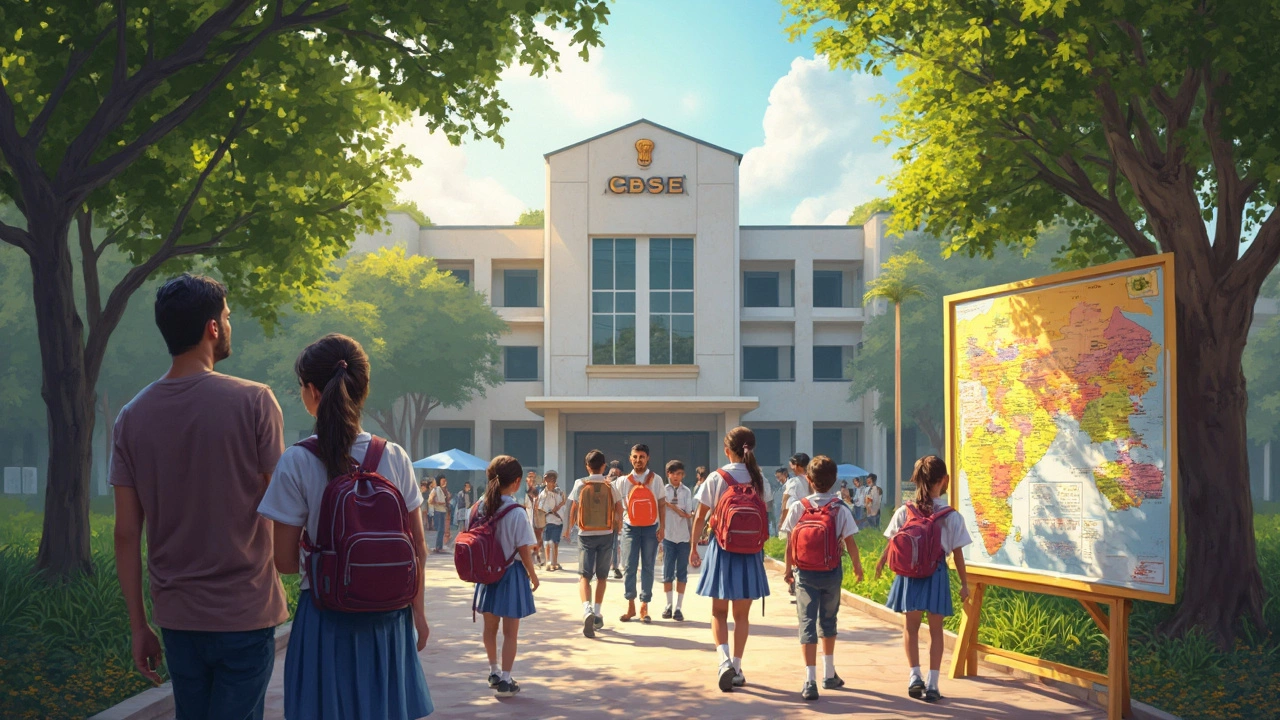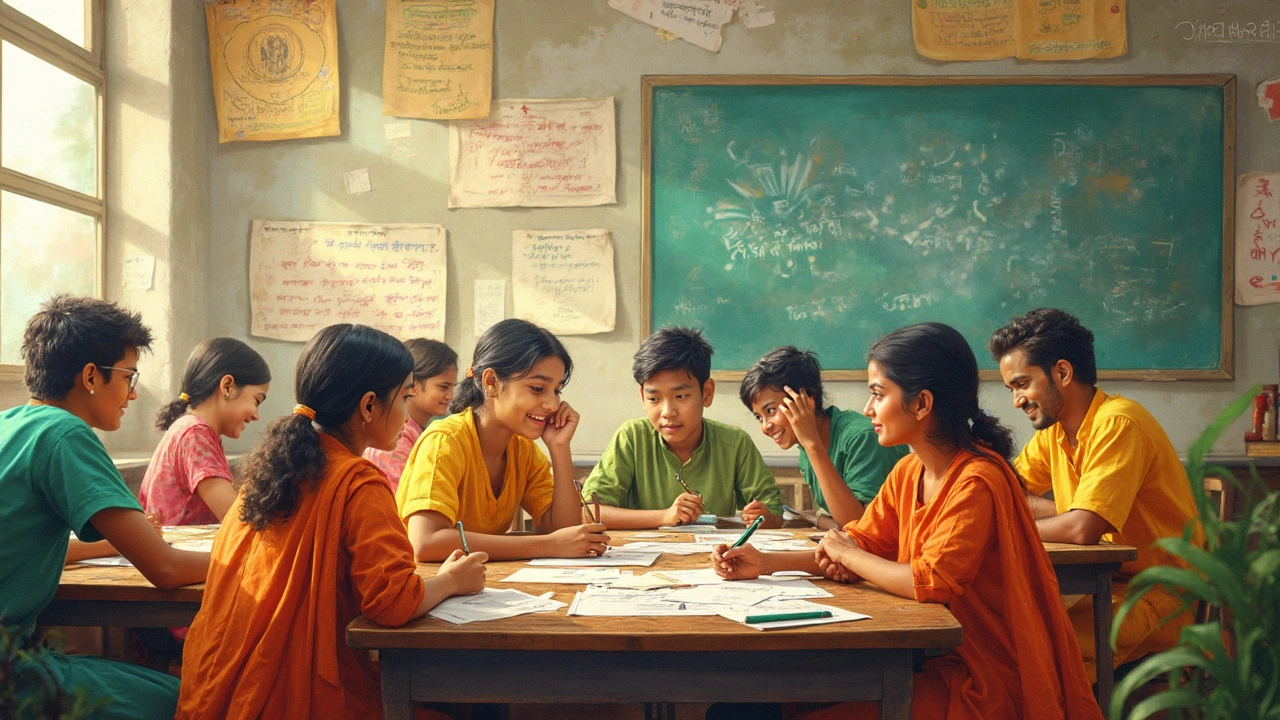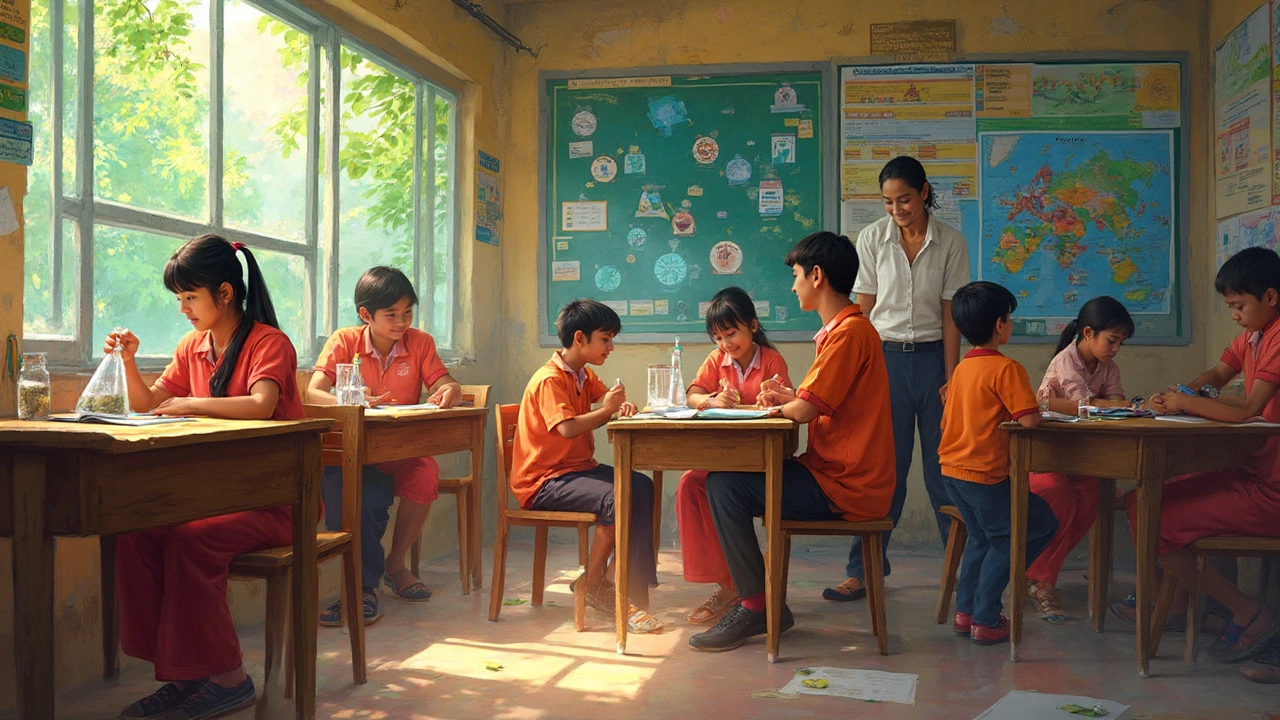CBSE Syllabus Guide – Everything You Need to Know
If you’re looking at the CBSE syllabus, you probably want to know what subjects are covered, how the exams work and how to study smart. The CBSE board runs most schools in India, so its curriculum shows up everywhere – from small towns to big cities. Below you’ll get the basics, plus a few practical tips that can help you ace the exams.
Key Features of the CBSE Curriculum
The CBSE syllabus is split into three stages: Class 6‑8 (Science, Math, Social Studies, Languages), Class 9‑10 (Core subjects plus optional electives) and Class 11‑12 (streams – Science, Commerce, Arts). Each stage follows a clear pattern: theory chapters, practical work (especially for Science), and periodic assessments.
Board exams in Class 10 and 12 are the biggest milestones. They use a 180‑mark paper for each main subject, with a mix of MCQs, short answers and long answers. The final score decides your percentage, which many colleges use for admissions. The grading system now uses nine grades (from 9 to 1) instead of just A‑E.
One big benefit of the CBSE syllabus is its focus on concepts over rote memorisation. NCERT textbooks are the core material, and the board often updates them to match the latest exam pattern. That’s why many top‑scoring students – the CBSE toppers you read about – say sticking to NCERT first and then solving previous years’ papers is the safest route.
Tips to Make the Most of Your CBSE Studies
Start early. Even a 30‑minute review of the previous day's chapter can keep concepts fresh. Use the NCERT solutions to check your answers, but don’t rely on them alone – try solving the question on your own first.
Practice past papers regularly. The CBSE exam questions follow a predictable style, and the more you see, the easier it gets to spot patterns. Set a timer and simulate the real exam environment; it builds stamina for the 3‑hour paper.
Don’t ignore the practical component. For Physics, Chemistry and Biology, labs are 30‑40% of the internal assessment. Make a habit of writing clear, step‑by‑step lab reports – they’re easier to revise later and boost your overall marks.
Stay organized. Keep a note‑book for formulas, important dates and quick tricks. When revision time rolls around, you’ll have a ready‑made cheat sheet instead of flipping through thick textbooks.
Lastly, balance study with rest. A short walk, some music, or a quick chat with friends can reset your brain and improve concentration. The CBSE syllabus is demanding, but with a steady plan and these simple habits, you’ll handle it without burning out.
Which Are the 3 Toughest Exams in India?
The three toughest exams in India are IIT JEE, NEET, and UPSC CSE. Each has a pass rate under 5%, demands mastery of CBSE syllabus, and tests mental resilience more than just knowledge.
read moreIs British or CBSE better for students in 2026?
CBSE and British curriculum offer very different paths. CBSE is ideal for students targeting Indian engineering or medical colleges. The British curriculum prepares students for global universities with deeper critical thinking and project-based learning.
read moreCBSE Schools in India: Which State Has the Most?
This article unpacks which Indian state tops the charts with the highest number of CBSE schools and what makes certain states a popular pick for parents and students. You’ll get a look at real numbers, see what drives these trends, and find out why location matters for CBSE education. Plus, there are practical tips if you’re hunting for a CBSE school. Discover how CBSE schools impact opportunities across various states. Packed with relatable stories and facts, this guide makes picking the right state and school easier for your family.
read moreIs Education Better in India or the USA?
Choosing between education in India and the USA depends on individual goals and priorities. Both countries offer unique benefits: India with its strong foundation in math and science, and the USA with its focus on creativity and student engagement. Understanding the CBSE syllabus and its global relevance is crucial, alongside weighing cultural and lifestyle differences. Balancing these factors helps in making an informed decision about studying in either country.
read moreWhat is a 12th Class Degree Called in India?
In India, the 12th class degree is often referred to as 'Senior Secondary School Certificate' which marks the completion of higher secondary education. This stage is critical as it sets the foundation for students' university education and career paths. It's part of the Senior Secondary stage of the Indian education system governed by boards like CBSE, ICSE, and state boards. Depending on the stream chosen, students prepare through a curriculum focusing on specialized subjects. After successful completion, they receive certificates recognized nationally and internationally.
read moreUnderstanding the CBSE Curriculum in India: A Comprehensive Guide
The CBSE syllabus in India forms the backbone of the educational framework for students across the nation. It is characterized by a structured and standardized approach to subjects, preparing students for national exams and future academic pursuits. This article provides an in-depth view of the CBSE curriculum, covering its key elements, subject-wise details, and recent changes. Useful tips for students and parents to navigate and make the most out of the CBSE educational system are also discussed.
read more




